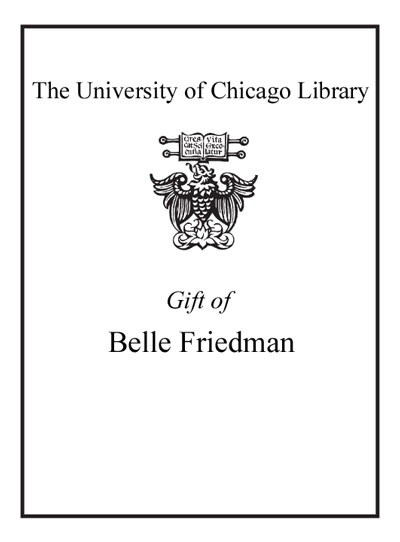Reading the Bible across contexts : Luke's gospel, socio-economic marginality, and Latin American biblical hermeneutics /
Saved in:
| Author / Creator: | Autero, Esa, author. |
|---|---|
| Imprint: | Leiden ; Boston : Brill, [2016] |
| Description: | xiv, 418 pages ; 25 cm. |
| Language: | English |
| Series: | Biblical interpretation series, 0928-0731 ; volume 145 Biblical interpretation series ; v. 145. |
| Subject: | |
| Format: | Print Book |
| URL for this record: | http://pi.lib.uchicago.edu/1001/cat/bib/11018472 |
Table of Contents:
- Acknowledgements
- List of Abbreviations
- Introduction
- Part 1. Background and Methodology
- 1. Latin American Biblical Hermeneutics
- 1.1. Latin American Liberation Hermeneutics
- 1.2. Pentecostal Hermeneutics in Latin America
- 1.3. Brief Comparison of Popular CEB and Pentecostal Hermeneutics
- 2. Review, Analysis, and Presentation of Methods
- 2.1. Review of Empirical Hermeneutics
- 2.1.1. Analysis and Evaluation of Empirical Hermeneutics
- 2.2. Methodological Framework of the Study
- 2.2.1. Methodological Description of the Empirical Component of the Study
- 2.2.2. Reading Luke's Gospel Historically and in Dialogue with the Bolivian Readers
- 2.2.3. Toward a Description of Contextual Realities in Bolivia
- 2.2.4. Thick Description of the Bolivian Pentecostal Communities in the Case Study
- Part 2. Reading Luke's Poverty Texts across Contexts
- 3. Analysis of Ordinary and Scholarly Readings of Luke 6:20-26
- 3.1. Empirical Reading of Luke 6:20-26 by the Bolivian Pentecostal Groups
- 3.1.1. Socio-Economically Marginalized Group's Reading of Luke 6:20-26
- 3.1.2. Privileged Group's Heading of Luke 6:20-26
- 3.1.3. Comparison of Marginalized and Privileged Heading of Luke 6:20-26
- 3.2. Historical Readings of 6:20-26
- 3.3. Toward a Critical Dialogue-Reading Luke 6:20-26 across Contexts
- 4. Analysis of Ordinary and Scholarly Readings of Luke 12:22-34
- 4.1. Empirical Reading of Luke 12:22-34 by the Bolivian Pentecostal Groups
- 4.1.1. Socio-Economically Marginalized Group's Reading of Luke 12:22-34
- 4.1.2. Privileged Group's Heading of Luke 12:22-34
- 4.1.3. Comparison of Marginalized and Privileged Reading of Luke 12:22-34
- 4.2. Historical Readings of Luke 12:22-34
- 4.3. Toward a Critical Dialogue-Reading Luke 12:22-34 across Contexts
- 5. Analysis of Ordinary and Scholarly Readings of Luke 14:12-14
- 5.1. Empirical Reading of Luke 14.72-14 by the Bolivian Pentecostal Groups
- 5.1.1. Socio-Economically Marginalized Group's Reading of Luke 14:12-14
- 5.1.2. Privileged Group's Reading of Luke 14:12-14
- 5.1.3. Comparison of Marginalized and Privileged Reading of Luke 14:12-14
- 5.2. Historical Readings of 14:12-14
- 5.3. Toward a Critical Dialogue-Reading Luke 14:12-14 across Contexts
- 6. Analysis of Ordinary and Scholarly Readings of Luke 16:19-31
- 6.1. Empirical Reading of Luke 16:19-31 by the Bolivian Pentecostal Groups
- 6.1.1. Socio-Economically Marginalized Group's Reading of Luke 16:19-31
- 6.1.2. Privileged Group's Reading of Luke 16:19-31
- 6.1.3. Comparison of Marginalized and Privileged Reading of Luke 16:19-31
- 6.2. Historical Readings of Luke 16:19-31
- 6.3. Toward a Critical Dialogue-Reading Luke 16:19-31 across Contexts
- 7. Analysis of Ordinary and Scholarly Readings of Luke 19:1-10
- 7.1. Empirical Reading of Luke 19:1-10 by the Bolivian Pentecostal Groups
- 7.1.1. Socio-Economically Marginalized Group's Reading of Luke 19:1-10
- 7.1.2. Privileged Group's Reading of Luke 19:1-10
- 7.1.3. Comparison of Marginalized and Privileged Reading of Luke 19:1-10
- 7.2. Historical Readings of Luke 19:1-10
- 7.3. Toward a Critical Dialogue-Reading Luke 19:1-10 across Contexts
- Part 3. Findings, Conclusions, and Implications
- 8. Hermeneuties, Socio-Economic Status, and Luke's Gospel
- 8.1. General Hermeneutical Processes of the Bolivian Groups
- 8.1.1. The Bolivian Groups' Attention to the Text Itself
- 8.1.2. Attention to the World behind the Text
- 8.1.3. Interpretation at Strategies, Including Strategies of Imagination and Character Identification
- 8.1.4. Appropriation Strategies and Praxcological Effects of the Text
- 8.1.5. Heuristic Keys and Reading Attitude
- 8.1.6. Attention to the Tradition of Interpretation, Contemporary Context of Interpretation, and to the World behind Interpretative Processes
- 8.1.7. Group Dynamics
- 8.2. Socio-Economic Status and Hermeneutical Processes
- 8.2.1. The Influence the Socio-Economic Status on the Hermeneutical Processes
- 8.3. Empirical Hermeneutics and Academic Biblical Scholarship
- 9. Implications and Final Reflections
- Bibliography
- Index of Modern Authors
- Ancient Sources

